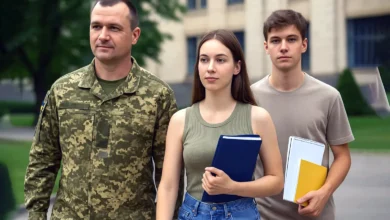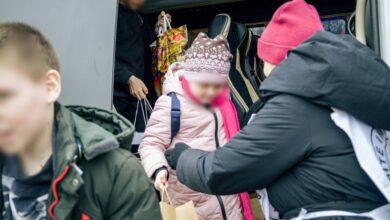The President signed a law that provides for criminal liability for the illegal movement of a child by foreign actors and the intentional delay of their repatriation

In the modern war against Ukraine, one of the most painful topics remains the fate of children forcibly relocated by the Russian Federation from the occupied territories. It is not only about the numerous facts of deportation of minor citizens of Ukraine, but also about the deliberate delay of their return, change of citizenship, forced integration into Russian society. All this happens in violation of the norms of international humanitarian law, with a violation of the fundamental rights of the child. Volodymyr Zelenskyy signed a law that establishes criminal liability for the illegal transfer of a child by foreign entities, as well as for deliberately delaying his repatriation.
New criminal legal mechanisms: what changes the adopted law
On July 15, 2025, the President of Ukraine, Volodymyr Zelenskyi, signed a law that establishes criminal liability for the illegal transfer of a child by foreign entities, as well as for intentionally delaying its repatriation. This step should become a powerful tool in bringing to justice all those involved in crimes against Ukrainian children — in particular, Russian officials, military personnel and collaborators who facilitated or directly organized such actions.
In the explanatory note it is said, that the Law amends the Criminal and Criminal Procedure Codes of Ukraine, introducing a new article — 448. It provides for a separate norm that qualifies as a criminal offense:
- illegal transfer of a child who is under the protection of international humanitarian law;
- unjustified delay of her repatriation after the end of active hostilities or loss of grounds for further detention;
- any actions that directly or indirectly contribute to the child being left on the territory of the aggressor state contrary to his right to return.
The law also provides for changes to the criminal process in the area of investigation — determining which law enforcement agencies will be authorized to conduct investigations of these crimes. This makes it possible to initiate systematic criminal prosecution of specific persons who participate in the deportation, maintenance, and change of citizenship of Ukrainian children without the consent of parents or guardians.
The scale of the problem: numbers that cannot be ignored
According to the Children of War platform, as of mid-July 2024, at least 19,546 cases of deportation or forced transfer of Ukrainian children to Russia or its controlled territories have been identified. Of this number, only 388 people were returned. These figures, officially released, do not cover the full scale of the tragedy – the real number of children removed may be much higher, especially given the closedness of the Russian side to any checks.
In its conclusions, the UN International Independent Commission for the Investigation of Violations in Ukraine indicated that the Russian authorities not only do not facilitate the return of children, but also systematically prevent it. In particular, children are transferred to foster families, forced to accept Russian citizenship, imposed linguistic, cultural and identification adaptation to the Russian space. All of this is in violation of Article 49 of the 1949 Geneva Convention, which prohibits any transfer of protected persons from occupied territories regardless of motive.
According to international humanitarian law, in particular Article 85(4)(b) of Additional Protocol I to the Geneva Conventions, the unjustified delay in the repatriation of civilians (including children) is a serious violation of international law, which qualifies as a war crime. This norm was adopted by the consensus of states and has already been integrated into the national criminal codes of at least 31 countries of the world — from Germany and Canada to Georgia and Slovenia.
Until now, Ukrainian legislation did not contain a clearly defined article that would allow bringing to justice persons guilty of deporting children or unjustifiably delaying their return. This created a legal vacuum and made investigations difficult, even when facts and evidence were available.
What does delaying the repatriation of a child mean in practice
In cases where the child is not returned, even if there are no objective obstacles, but on the contrary, conditions are created for her to be left in Russia, it is both a formal offense and a purposeful strategy. Repatriation is impossible due to administrative barriers, change of documents, transfer of the child to Russian families or residential institutions. This is accompanied by campaigns of ideological adaptation: the imposition of a new linguistic, cultural and national identity.
The Ukrainian side insists that this practice has all the signs of a crime aimed at forcibly separating a child from his national roots.
The new law aims to break the chain of impunity. It establishes tools to identify, document and prosecute each individual case of wrongful removal or retention of a child. It is not only about fixing the facts, but also about creating a legal framework for future proceedings in national and international courts. Ukraine’s principled position is that crimes against children do not have a statute of limitations — and every official involved in these actions must be held accountable.
Ukrainian children who ended up in the Russian environment as a result of the war have the right to return to their families, their language, culture, and country. The law signed by the president is a step towards ensuring that this right does not remain an abstraction. In a world where war increasingly takes the forms of not only physical destruction, but also the eradication of identity, the protection of the youngest becomes the immediate duty of the state.





